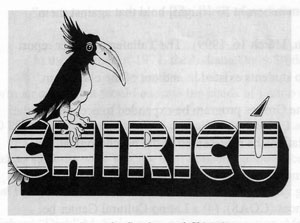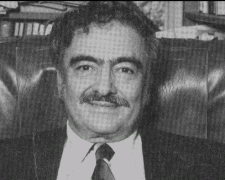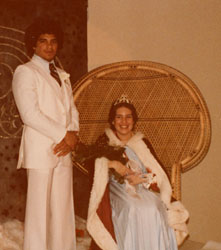Latino Timeline
1976-1979
1976
February
Horacio Lewis, Latino faculty and students, and I.U. Vice President Robert O'Neal met to discuss reform progress in the university's efforts to improve Latino programs and resources. Included in the meeting was discussion about the fate of La Casa: students expressed the need for a new facility.
H.B. 1324, the Bilingual/Bicultural Act, was signed into law by Governor Otis Bowen in Indianapolis. Co-written by I.U.-Northwest assistant professor of Spanish Nicolas Kanellos, the law was developed to address bilingual and bicultural education needs in districts where there was a predominance of non-English speakers.
July
Guadalupe Anaya was appointed as the new Director of Latino Affairs. Moving over from the University Division's Groups Program where she served as a counselor, Anaya indicated that she intended to continue two initiatives: freshmen orientation week-end for Latino students, and improvements to the Latino Cultural Center. Anaya earned a Bachelor's degree in Psychology in 1974, and a Master's degree in Education in 1976, both from I.U.
August
I.U.S.A. administrators continued to deliver on their pledge to bring greater minority representation to the student government process. Their plans included adding two minority students to the student advisory committee in the Office of the Dean of Student Services.
September 13
I.U.S.A. passed a formal resolution in support of the plight of migrant farmworkers in Indiana. I.U.S.A. Vice President, senior Dave Campos, acknowledged the need to improve employment and living conditions among the labor group.
Autumn
The Latino Cultural Center was moved from its location at 410 South Park St. to a new home at 715 East Seventh St. The new location afforded an additional 1200 square feet of space, part of which was intended to house a Chicano-Riqueño Studies research library.
October 18
La Hermandad Panamerica (The Panamerican Brotherhood), a group of I.U. faculty and students who made monthly visits to the Terre Haute federal penitentiary to visit Latino prisoners, was expelled after marijuana residue was detected by the prison staff in an inmates-only restroom.
 |
Chiricú (Chicano-Riqueño-Cubano) first issue in spring. The graduate student publication focussed on scholarly essays, book reviews, folklore material, poetry, a public forum, and art published in English, Spanish, and Portuguese. |
The Latino Project, a program designed to introduce student teachers to Latino education situations, entered its third year at I.U. It included semester-long placements in one of four systems: Chicago, IL, East Chicago, IN, Gary, IN, Nogales, AZ, and Mercedes, TX.
1977
|
January Rodolfo Acuna, professor of Chicano Studies at California State University-Northridge, gave a lecture at Ballantine Hall. Addressing a largely student audience, Acuna focused on the implications of the 1976 California Supreme Court Bakke decision. In addition, he addressed current trends in Latino social life, including income and education. February Jorge Huerta, assistant professor of drama at the University of California at San Diego, gave a lecture about the development of Teatro Chicano (Chicano Theatre). Director of El Teatro Nacional de Aztlan, Huerta indicated that a modern theatre movement began among Chicanos in California in the mid-1960s. The content of those worker-based performances focused on the injustices of the migrant agricultural system. Huerta also directed a theatre workshop at La Casa after his lecture. Third-year law student Eduardo Lerma gave testimony to the I.U. Police Department (I.U.P.D.) Advisory Committee concerning the treatment of minorities by officers. Lerma claimed that blacks and Latinos had been the victims of discriminatory conduct on the part of the officers. I.U.P.D. Director George Huntington indicated a willingness to meet and discuss the grievances. Vice President Robert O'Neal appointed Carlos Bakota, the director of Chicano-Riqueño Studies and an associate professor of history, to an administrative position in charge of the administrative restructuring process for the Office of Latino Affairs and La Casa. The Latino student population elected four fellow students to serve on an advisory committee created by Carlos Bakota in his restructuring efforts. Along with senior Olga Cruz, three graduate students were elected: Daniel Simonsohn, Jose Gonzalez, and Norma Alarcon. |
|
March June July |
1978
March
The first day of the Latino Film Festival began with a presentation of Spanish director Jose Luis Borau's "Camada Negra". After the presentation, Borau led a discussion of the film at La Casa. The festival, intended to expose the Latino community to aspects of its culture, was sponsored by the Office of Latino Affairs, the departments of Spanish and Portuguese, Political Science, Afro-American Studies, Western European Studies, and the Ford Foundation. It also included the films "Macunaima", "El Otro Francisco", and "The People are Rising".
August
 |
I.U. Mahlon Powell professor of Philosophy, Hector-Neri Castañeda, was appointed as the first Dean of Latino Affairs. A native of San Vicente, Zacapa, Guatemala, Castañeda had plans to begin a newsletter portraying the achievements of Latino faculty at I.U., as well as a tutoring program for Latino students. |
September 15
The Office of Latino Affairs held its second annual celebration of Mexican Independence Day in the Frangipani Room of the IMU. The program included a mariachi band and dancers from the Ballet Folklorico Mexicano. The evening's keynote speech was delivered by state assistant superintendent for public affairs in the Indianapolis-based Department of Federal Instruction, Fausto Vergada.
Autumn
Dean of Latino Affairs, Hector-Neri Castañeda established a task force charged with increasing the number of Latino students at I.U. Joined by the student group ALMA, the effort targeted Latino students and high-school students. Senior David Marrero indicated three major priorities for the effort: recruitment of new students, retention, and increased financial aid opportunities.
October
The Office of Latino Affairs and the Latin American Music Center sponsored a performance at the School of Music Recital Hall. The program featured works by Latin American composers, including I.U. faculty members Juan Orrego-Salas and Alfonso Montecino. A reception followed the performance at La Casa.
1979
Latinos Unidos of Indiana University (LUIU) was founded by Denny Berrones, Tony Gomez, Albert Lerma, and David Cordova. LUIU replaced ALMA which had become primarily a cultural organization and did not serve as an advocacy group.
The Latino Scholar Certificate Program (for high school students) was initiated by David Marrero, Assistant Director of Latino Affairs. The purpose of the certificate program was to recognize the academic achievement of Latino students and to motivate them to continue working hard to further their education. The Latino Scholar Certificate Program was part of the Office of Latino Affairs' attempt to establish closer ties with Latino communities throughout Indiana.
April
 |
The first annual Latin Week at Indiana University was held in the Spring semester and sponsored by the Office of Latino Affairs and ALMA. The Latin Queen Pageant was held on the 7th and Carmen Martínez was crowned queen. |
The First Annual Latino Student Recognition Banquet was held. The Office of Latino Affairs sponsored this banquet to recognize students for both outstanding academic achievement and service to the Latino community at Indiana University and in Bloomington.
